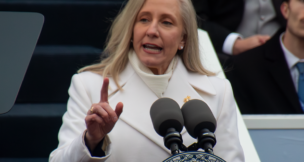Glitchy start on the exchange
Dec. 15 is the deadline for signing up on for insurance coverage starting Jan. 1
Robert Burke //October 30, 2013//
Glitchy start on the exchange
Dec. 15 is the deadline for signing up on for insurance coverage starting Jan. 1
Robert Burke //October 30, 2013//
For people signing up for health insurance under the Affordable Care Act in early October, it wasn’t a very smooth launch. Sara Cariano knows this because she saw it firsthand as a “navigator” trying to help people through the application process.
“You’d go on the [healthcare.gov] website, and you’d click ‘apply now,’ and it makes you choose what state you live in, and then it comes up with a page that pretty much says, ‘Hold on, we’re going to get you there,’” says Cariano, who works for the Central Virginia Legal Aid Society in Richmond.
The website often didn’t do what it promised, she says. “I sat with a consumer for about 40 minutes, and we tried to create an account, and we finally just gave up and made an appointment in two weeks to try again.”
There were lots of stories like that during the rollout of the Affordable Care Act’s individual health insurance exchange. Problems with the website continued throughout October.
Adding to consumers' frustration was the fact some were receiving notices that, starting next year, their current individual health plans would not meet the standards of the federal law.
Jeffrey Zients, an health-care entrepreneur overseeing efforts to repair the website, told reporters in late October that it should be operating smoothly by late November.
The first real deadline that matters is Dec. 15. That is the last day to enroll if you want your health insurance coverage to begin on Jan. 1.
There is another deadline for obtaining coverage to avoid being charged a penalty under the health-care law's individual mandate. Originally set for mid-February, that deadline has been extended six weeks, to March 31.
Cariano notes that buying insurance for the first time — many of the enrollees have never been eligible to do so — can be a complicated thing to understand. “I try to be very encouraging to people,” she says.
There is a lot to figure out, but there’s time to do so. Some applicants are eligible for federal subsidies. How much a policy costs depends in part on where you live in Virginia. Those who are eligible for Medicaid or Medicare don’t need to use the exchange at all.
Advice is available for free. A website called Enroll-Virginia.com gives consumers direction for where to find local advice on how to apply for health insurance and which options are available. The site is supported by a number of groups, including the U.S. Department of Health and Human Services, the Virginia Association of Health Plans and the Virginia Hospital and Healthcare Association.
The site has a rollover map that connects users to certified application counselors who can meet with them in person to discuss options and show them how to complete their applications.
The current open-enrollment period ends in March. After that, the next chance to enroll will be next October. That’s the same time as the open enrollment period for federal employees, says Doug Gray, executive director of the Virginia Association of Health Plans. “That’s not a mistake, that’s a strategy in the part of the makers of the exchange to have everyone considering their options at the same time,” he says.
The options offered on the public exchanges are crafted so consumers can compare one to another. But some insurers offer insurance packages off the exchanges, and there are also private insurance exchanges. The Virginia Farm Bureau Federation, for example, has created a private exchange, HealthMarketplaceVa.com, that will guide users through the various options.
Bill Monday, vice president for health-care programs at the Virginia Farm Bureau, says there likely will be more options on the private exchanges. That’s because the public exchanges under ACA are aimed at consumers “who are extremely price sensitive,” he says. Private exchanges also will be able to offer a kind of one-stop shopping. They can create websites that show what public exchange options offer and let consumers compare that to private exchange options.
Private exchanges have emerged to serve big employers that want to lower their cost for providing employee health insurance, Gray says. There are also private exchanges set up by smaller organizations, he says, because the exchanges let the groups hold onto the revenue they make from marketing health insurance to their own members. Sometimes, in fact, companies join these groups just for the insurance option.
Cariano says Virginia has fewer trained people to help consumers navigate the health insurance options than Maryland, for example, because it decided to let the federal government set up the insurance exchange, instead of doing so itself. “States with state exchanges also had state funds to hire navigators,” she says.
Despite the state’s reliance on a smaller number of people like Cariano, along with volunteers, the hope is that the process of enrollment will get easier. “Health insurance in general is just a very complicated thing if you’ve never had it before,” she says. “I’m hoping in a few weeks we’ll have some success stories.”
C
















